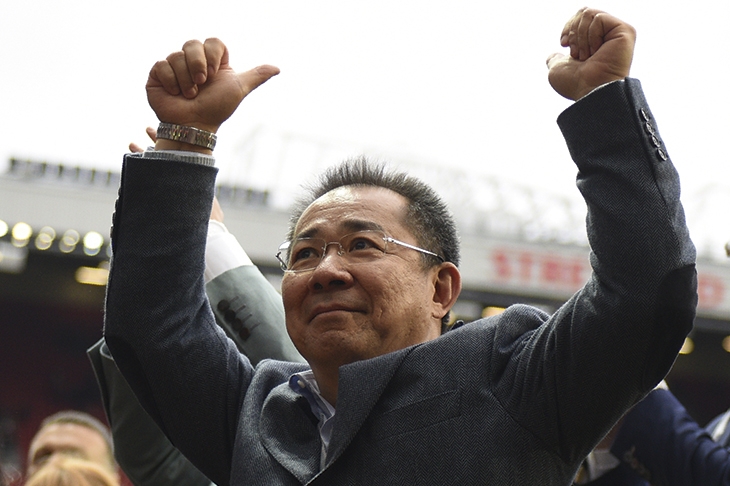This is a story of resurrection. A mere three decades ago, club football in England was a professional game largely and listlessly run by amateurs. Fans shuffled in decreasing numbers to obsolete stadia redolent of pie and pee. Lives were lost in the tragedies of Bradford, Hillsborough and Heysel. The sport was scarcely entertainment; it was certainly not a business. Yet today the Premier League is the world’s richest sporting brand. How this happened is a tale told with much verve and some wit by two experienced sports journalists.
The key modernisers, David Dein of Arsenal, Irving Scholar of Spurs and Martin Edwards of Manchester United, entrepreneurs who presciently purchased shares in the then underperforming assets, looked westwards to the National Football League of the USA for models of governance, marketing and sponsorship.
The creation of the Premier League in 1992 fulfilled the wish of the top 20 clubs to be able to negotiate commercial rights in their own interests without the need to share it equally with the other less popular clubs in the football league. A capitalist replaced a socialist structure. With a modicum of legal legerdemain, in one bound they found their freedom; and in Rupert Murdoch’s satellite television their golden goose. Paradoxically, the more that games are broadcast, the greater the attendance at matches.
In 1997 an obscure Belgian midfielder, Jean-Marc Bosman, persuaded the European court of justice that the transfer fee demanded by his club after the expiry of his contract was an unreasonable restraint of trade. The path opened up for foreign footballers to ply their profession in an increasingly attractive English competition, the spiralling wages compensating for the inclement weather. Time spent in the Premier League enhances the CV of a footballer — whether an embryo superstar like Cristiano Ronaldo or a journeyman like Alan Sugar’s fictional paradigm Carlos Kickaball. (How clubs retain the loyalties of fans when teams contain not even a single native-born player remains a mystery.)
This book’s main dramatis personae are not the footballers or even the celebrated managers — whether exotic figures signed up to make some clubs contenders for the major prizes or homegrown veterans constantly recycled to save others from relegation. Rather, they are the new breed of overseas owners — sheikhs, oligarchs, American captains of industry or Asiatic tycoons — whose wealth is as impressive in size as its source is sometimes obscure, and whose interest in events on the field of play usually extends only to their impact on the balance sheet. Football clubs have themselves become trophies. The net worth of those in the Premier League has increased from a standing start by 10,000 per cent.
Because its focus is on the boardroom there is little here about the recurrent racism (even though the all white English world cup winners of 1966 have been succeeded by a truly diverse national team),anti-Semitism and homophobia in the stands; the prevalence of that oxymoron, the professional foul; the theatrical diving designed to win an unwarranted penalty; or the intimidation of referees on the pitch. All of these continue to mar the beautiful game. But beauty lies in the eyes of the spectator, and too often the motto is ‘My team, right or wrong’. The influx of money has raised the salary of the players, the standards of play and the facilities from which to watch games, yet football’s moral culture leaves much to be desired.
Unlike the NFL, the Premier League is not a closed shop. Within it all clubs became richer, but some became richer than others; hence the importance of the Championship play-offs which decide who will gain entry by promotion to this ever more profitable enclave. But there may be yet further movement in football’s tectonic plates. Revision of the formula for distribution of television revenue has still left unsatisfied the Big Six — three from London, two from Manchester, one from Merseyside — now regularly ensconced in the League’s leading places, broken only by the unprecedented but surely unrepeatable triumph of Leicester City in the 2015–2016 season. As the authors note, the same commercial imperatives that gave birth to the Premier League itself may sound its death knell, with the arrival of a Champions League peopled by Europe’s top clubs.
If this history has a hero it is the recently retired chief executive Richard Scudamore, the marketing genius behind the rise of the Premier League’s global profile. He quit his post with a CBE in the New Year’s Honours and a £5 million bonus — which has excited grassroots criticism from fans more concerned with the intimidating rise in ticket prices. His appointed successor, Susanna Dinnage, had second thoughts, preferring to remain president of Animal Planet. Her replacement will have to negotiate new digital deals with rootless and ruthless providers. The first chapters for a potential sequel to this revelatory volume are already taking shape.






Comments